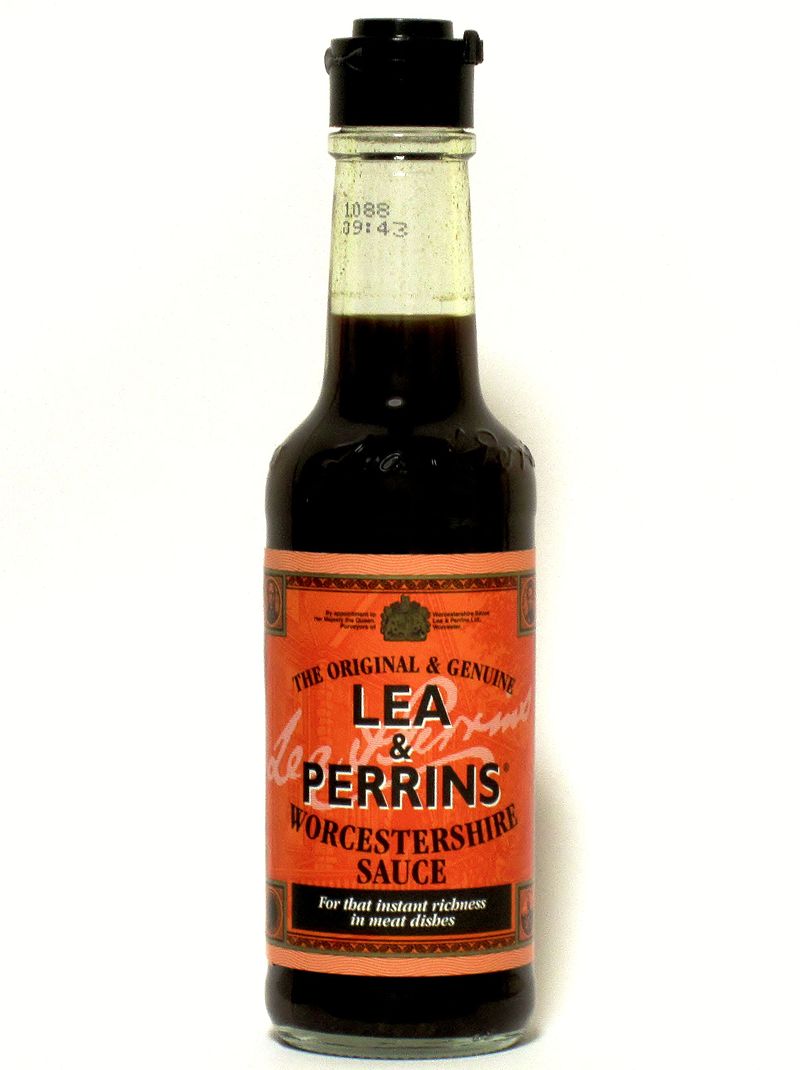Decoding The Worcester Sauce Pronunciation: A Flavorful Journey
Have you ever found yourself hesitating before ordering a dish that includes Worcestershire sauce, unsure about how to pronounce it correctly? You’re not alone! This particular sauce, with its unique mix of flavors, often poses a challenge to many food enthusiasts and culinary novices alike. The confusion surrounding the pronunciation of Worcestershire sauce is almost as rich as the sauce itself, steeped in history and regional dialects. The English sauce, known for its complex blend of ingredients, has made its way into kitchens worldwide, but the way we say its name can vary dramatically. In this article, we will dive deep into the Worcestershire sauce pronunciation, unraveling its roots and helping you feel more confident the next time you encounter this fascinating condiment.
Worcestershire sauce is beloved for its umami flavor, commonly used in marinades, dressings, and various recipes. However, the myriad of sounds that come together to form its name can be daunting. In addition to exploring the intricacies of Worcestershire sauce pronunciation, we will also take a look at its history, culinary applications, and some fun facts to enhance your knowledge about this iconic sauce. By the end of this article, you will not only master the pronunciation but also appreciate the sauce's culinary significance.
So, are you ready to embark on a flavorful journey through the world of Worcestershire sauce? Let’s start by uncovering the correct way to say it and discover the stories behind this extraordinary condiment!
What is the Correct Worcester Sauce Pronunciation?
The pronunciation of Worcester sauce can often leave people tongue-tied. It is commonly mispronounced in several ways, such as "Wor-chester-shire" or "Wor-cester-shire." However, the correct pronunciation is "WUSS-tuh-sheer" or "WUSS-tuh-sher." The key is to simplify the phonetics, allowing for a smoother flow. This pronunciation is derived from the city of Worcester in England, which is pronounced similarly.
Why is Worcester Sauce Pronunciation So Challenging?
The difficulty in pronouncing Worcestershire sauce stems from its origins in the English language and the unique spelling that does not phonetically align with its articulation. Here are a few reasons why it can be tricky:
- The presence of silent letters, such as the "c" and "h."
- The regional dialects that influence pronunciation.
- The length of the word itself can be intimidating.
Are There Regional Variations in Worcester Sauce Pronunciation?
Yes! Pronunciation can vary based on where you are in the world. In the United States, people tend to lean towards "WUSS-tuh-sheer," whereas in the UK, you may hear "WUSS-tuh-shire" more frequently. The subtle differences often arise from local accents and dialects, making it a fascinating linguistic topic.
What is the History of Worcestershire Sauce?
Worcestershire sauce has a rich history that dates back to the early 19th century. It was first created by two chemists, John Wheeley Lea and William Henry Perrins, in the city of Worcester, England. They originally formulated the sauce for a local nobleman, who wished to replicate a flavor he enjoyed while traveling in Bengal, India. After some experimentation, the duo produced a fermented liquid full of flavor that quickly gained popularity.
What Ingredients Make Up Worcestershire Sauce?
Understanding Worcestershire sauce pronunciation also involves recognizing its composition. The sauce is made from a combination of several key ingredients, including:
- Vinegar
- Molasses
- Sugar
- Salt
- Anchovies
- Onions
- Garlic
- Tamarind extract
- Spices
These ingredients come together to create a robust flavor profile that enhances a variety of dishes.
How is Worcestershire Sauce Used in Cooking?
Worcestershire sauce is incredibly versatile and can be used in numerous culinary applications. Here are some popular uses:
- As a marinade for meats and vegetables.
- In salad dressings for added depth of flavor.
- As a seasoning in stews and soups.
- In cocktails, such as the classic Bloody Mary.
Its unique flavor can elevate any dish, making it a staple in many kitchens around the world.
What Fun Facts Should You Know About Worcestershire Sauce?
Aside from its captivating flavor and challenging pronunciation, Worcestershire sauce has some interesting facts:
- Worcestershire sauce has been around for over 180 years.
- The original recipe remains a closely guarded secret.
- Some brands offer vegetarian or vegan versions, substituting anchovies with plant-based ingredients.
- Worcestershire sauce is often included in recipes for homemade barbecue sauce.
Conclusion: Mastering the Worcester Sauce Pronunciation
Now that you’re equipped with the knowledge of Worcestershire sauce pronunciation, its history, and culinary uses, you can confidently incorporate it into your cooking and conversations. No longer will you stumble over the unique name of this beloved condiment. Remember, it’s "WUSS-tuh-sheer" or "WUSS-tuh-shire." So, the next time you’re in the kitchen or at a restaurant, you can savor the flavor of Worcestershire sauce, all while pronouncing it like a pro!
Article Recommendations
- Ramen Recall
- Benzema Children
- Karmic Cycle Ending
- Katy Perry
- Vijay Varma First Wife
- Amy Lynn Bradley
- Liv Tyler
- Laurie Taylor Williams
- Liam Neeson Height
- Sunday Rose Kidman Urban




